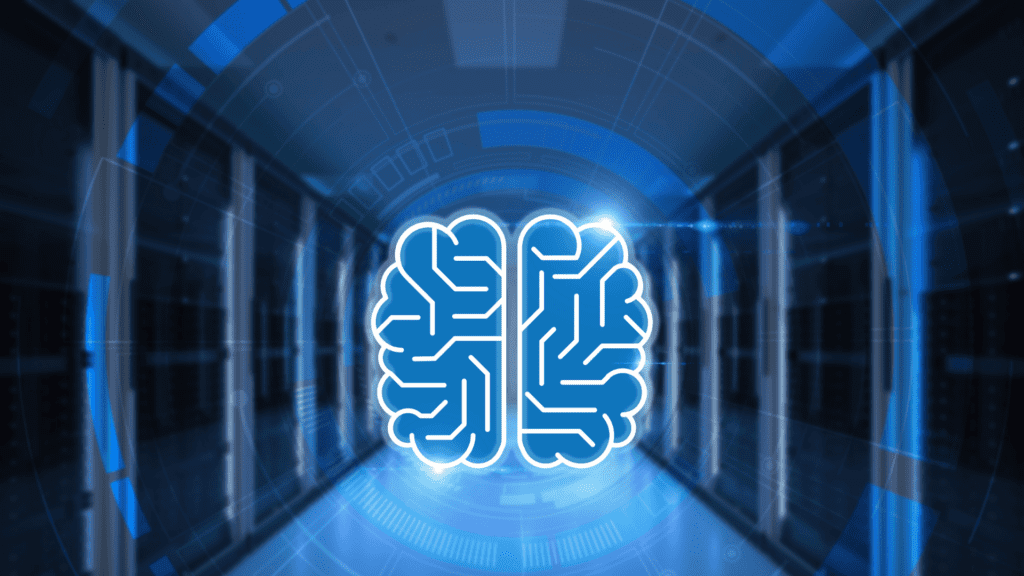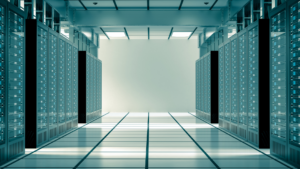At first glance, this symbiosis between AI workloads and colocation seems like a perfect partnership, one that brings together the best of both worlds: the advanced capabilities of AI with the robust, reliable and scalable infrastructure that colocation offers. But what makes this combination so ideal? And how can companies take full advantage of this partnership?
AI workloads, known for their data-intensive and compute-heavy requirements, are constantly looking for optimized environments that not only deliver the computing power they need, but also provide the scalability, security and connectivity necessary for advanced analytics and learning. This is where colocation comes in, a service that offers companies the opportunity to house their hardware in specially equipped data centers designed for peak performance.
In this article, we'll dive into the synergy between AI workloads and colocation, exploring the benefits of this combination and highlighting the challenges that need to be overcome. From accelerating AI-driven innovation to optimizing costs and improving security, we'll uncover how this partnership is changing the landscape for businesses looking to be at the forefront of the technology revolution.
Basics of AI workloads
Definition and characteristics of AI workloads
Definition and characteristics of AI workloads
AI workloads refer to the compute- and data-intensive processes required to train and execute artificial intelligence (AI) models. These workloads are known for their complexity and diversity and play a critical role in industries ranging from healthcare to financial services to manufacturing. To understand the fundamentals of AI workloads, it is important to look at their key aspects:
Data intensity
AI models, especially in the field of deep learning, require massive data sets for training in order to recognize and learn patterns. These data sets can consist of images, texts, audio files or complex time series and require considerable storage and processing capacities.
Computing requirements
Training AI models is a computationally intensive process that requires specialized hardware such as GPUs (Graphics Processing Units) or TPUs (Tensor Processing Units). This hardware accelerates the matrix and vector calculations that are essential for machine learning and deep learning.
Algorithms and models
AI workloads include a variety of algorithms and models, from classic machine learning methods such as linear regression and decision trees to advanced deep learning networks such as Convolutional Neural Networks (CNNs) and Recurrent Neural Networks (RNNs).
Scalability
The ability to scale workloads efficiently is critical for AI applications. This includes scaling the infrastructure to keep pace with the increasing size of data sets and complexity of models, as well as scaling the models themselves to adapt to different use cases.
Security and data protection
As AI workloads often work with sensitive data, ensuring security and privacy is of paramount importance. This includes protecting the data during processing and storage, as well as ensuring that the AI models themselves do not exhibit bias or reveal sensitive information.
Examples of AI workloads in different industries and use cases
Software
In the software industry, AI workloads serve as catalysts for innovation, efficiency gains and the development of novel applications that outshine traditional approaches. By integrating AI into the software development cycle, companies can not only improve their products, but also revolutionize the entire development process.
AI-powered development tools enable programmers to work faster and more accurately by making code suggestions, automatically detecting and fixing errors and improving code quality through advanced analysis techniques. These tools can shorten development times while increasing the security and robustness of the code.
In addition, the application of AI in the software industry enables the creation of intelligent applications that are able to adapt to the behavior and needs of users. From personalized learning experiences in educational software to adaptive security systems that proactively respond to threats, AI opens up new possibilities for software solutions that are more intuitive, effective and secure.
Another key element of AI in the software industry is the automation of routine tasks. By using AI, repetitive and time-consuming tasks can be automated, giving developers more time for creative and complex problems. This not only increases productivity, but also promotes innovation.
E-commerce and customer service
In e-commerce, AI workloads improve the customer experience through personalized recommendations and efficient customer service. AI-driven recommendation systems analyze customers' purchasing behavior and preferences to make tailored product suggestions that increase customer satisfaction and loyalty. In addition, AI-based chatbots are able to process a large number of customer inquiries, resulting in faster and more efficient communication
Education
In education, AI workloads enable personalized learning experiences and improve the accessibility of educational resources. AI systems can adapt learning content to the individual level of knowledge and needs of learners, thereby increasing learning success. They can also support teachers in assessing performance and provide valuable insights into students' learning progress.
Entertainment and media
In the entertainment and media industry, AI workloads are used to personalize content and open up new forms of creative expression. Streaming services are using AI to generate movie and music recommendations based on user preferences, significantly improving the user experience. In addition, artists and developers are experimenting with AI in the production of music, movies and games to create innovative experiences that go beyond traditional formats.
Marketing and service industry
In the marketing and services industry, AI workloads play a crucial role in personalizing customer interactions, optimizing campaigns and improving the customer experience. The ability of AI to recognize complex data patterns and gain actionable insights from them enables companies to tailor their strategies precisely to the individual needs and preferences of their customers.
Financial services
In the financial industry, AI workloads are used to analyze complex data sets and gain insights that are essential for fraud detection, risk analysis and customer care. AI systems are able to recognize unusual patterns that could indicate fraudulent activity, providing an additional layer of security. They also improve the customer experience through personalized services and recommendations based on the analysis of customer behavior and preferences.
Manufacturing and Industry 4.0
In the manufacturing industry, AI workloads optimize production processes through predictive maintenance and quality control. By analyzing machine data, AI systems can predict potential failures and plan maintenance work before costly downtime occurs. They also ensure the consistently high quality of end products by monitoring production lines in real time.
Automotive industry and autonomous vehicles
The development of autonomous vehicles is unthinkable without AI workloads. These vehicles rely on AI to understand their environment and make decisions. By analyzing sensor data, autonomous systems can detect obstacles, interpret traffic flow and execute safe driving maneuvers in real time. The immense computing power required to process this data makes AI workloads an indispensable part of automotive technology.
Retail trade
In retail, AI workloads are transforming customer interaction and inventory management. By analysing buying patterns and consumer behaviour, retailers can optimize stock levels and avoid shortages. AI-powered systems also enable personalized marketing strategies based on customers' individual preferences and buying behavior, leading to improved customer satisfaction and increased sales.
Energy and supply
In the energy and supply sector, AI workloads play a key role in optimizing energy distribution and consumption. They make it possible to control energy flows intelligently, thereby increasing efficiency and reducing costs. AI can also help to predict peaks in demand and maintain critical infrastructure, resulting in a more reliable energy supply.
Healthcare
In healthcare, AI workloads are revolutionizing the way patient data is analyzed, diagnoses are made and treatment plans are developed. Artificial intelligence assists doctors in providing diagnostic support by analyzing medical images, such as X-rays or MRIs, with a precision that often exceeds human capability. In addition, AI models enable continuous monitoring of patient condition through wearables and portable devices, leading to personalized medicine approaches based on each patient's individual health data and patterns.
What is colocation?
Colocation, or "colo" for short, is a data processing service model in which companies house their server and network equipment in an external data center instead of building and maintaining their own infrastructure. This model allows companies to host their critical IT assets in purpose-built facilities that are optimized for security, reliability and performance.
A key feature of colocation data centers is the provision of physical space for customers' hardware, usually in the form of racks and cages, as well as the necessary infrastructure, including power supply, cooling, physical security and network connectivity. Customers benefit from the high availability of these critical services ensured by redundant systems and backup solutions, without the significant investment and maintenance associated with running their own data center.
Colocation services also offer a high degree of flexibility in terms of scaling the IT infrastructure. Companies can add additional rack space, power capacity or bandwidth as required, which is particularly beneficial for growing companies or those with fluctuating requirements.
In addition to basic services such as power and cooling, colocation providers often offer additional services, including network connections to multiple Internet service providers (ISPs), advanced security measures such as biometric access control and video surveillance, and on-site support and maintenance services by specialized personnel.
By opting for colocation, companies can benefit from the advantages of a state-of-the-art data center without having to bear the associated high capital and operating costs. This makes colocation an attractive option for a wide range of companies, from start-ups to large corporations, looking to manage their IT infrastructure efficiently and securely.
Synergies between AI workloads and colocation
The combination of AI workloads and colocation services creates a dynamic partnership that helps organizations meet the challenges of modern AI applications while benefiting from a highly available, scalable and secure infrastructure. These synergies arise from several key areas:
High-performance computing (HPC) and dedicated infrastructure
AI workloads, especially those based on deep learning and complex algorithms, require immense computing power, which is often provided by high-performance computing (HPC) data centers. Colocation data centers are typically equipped with the necessary HPC infrastructure, including specialized hardware such as GPUs and TPUs that are optimized for training and running AI models. These dedicated resources in colocation environments enable organizations to run their AI workloads efficiently and with high performance without having to invest in expensive hardware and infrastructure.
Scalability and flexibility
AI initiatives can grow rapidly, both in terms of the amount of data and the complexity of the models. Colocation provides the necessary flexibility and scalability to keep pace with this growth. Organizations can add additional rack space, power and cooling capacity as needed, enabling rapid scaling of their AI workloads without the need for extensive upfront investment.
Network bandwidth and connectivity
The transfer of large data sets required for the training of AI models requires high bandwidths and reliable network connections. Colocation data centers typically offer a robust network infrastructure with connections to multiple Internet Service Providers (ISPs) and direct connections to major cloud providers. These connectivity options ensure fast and reliable data transfer, which is essential for efficient AI workloads.
Security and compliance
AI applications often process sensitive data that requires a high level of security and compliance. Colocation data centers offer comprehensive security measures, including physical security controls, monitoring and access controls that help ensure the integrity and confidentiality of AI data. In addition, colocation providers can ensure compliance with industry-specific standards and regulations such as GDPR, HIPAA and others, which is critical for organizations operating in regulated industries.
Cost efficiency
By using colocation services, companies can avoid the high capital and operating costs associated with building and operating their own data center. Sharing resources in a colocation data center makes it possible to benefit from economies of scale, resulting in lower costs per unit. This is particularly beneficial for AI workloads, which can require significant investment in hardware and infrastructure.
Energy efficiency and sustainability
Modern colocation data centers are often at the forefront of energy efficiency and use advanced technologies to minimize energy consumption. This is particularly relevant for AI workloads, which can have significant energy consumption due to their computational intensity. By housing these workloads in energy-efficient colocation data centers, companies can not only lower their operating costs, but also reduce their environmental footprints. In addition, many colocation providers are investing in renewable energy sources, which helps companies achieve their sustainability goals.
Disaster recovery and business continuity
Colocation data centers provide robust disaster recovery (DR) and business continuity planning (BCP) solutions that are essential for ensuring the availability and reliability of AI applications. By geographically distributing AI workloads across multiple colocation sites, organizations can minimize the risk of data loss and downtime caused by disasters or outages. This redundancy and resilience is crucial for critical AI applications that require continuous availability.
Access to expertise and support
Colocation providers often have specialized technical staff that can help companies manage their AI workloads. This access to expertise can be particularly valuable for organizations that do not have in-house expertise in hardware maintenance, network operations or security management. By partnering with colocation providers, companies can ensure that their AI workloads are managed by experienced professionals, improving the performance and reliability of their systems.
Community and ecosystem
Colocation data centers often act as a hub for a variety of companies, including cloud providers, internet service providers and other technology companies. These ecosystems can provide valuable synergies and collaboration opportunities for companies running AI workloads. By being close to potential partners and service providers, companies can build new business relationships, gain access to new technologies and services, and develop innovative solutions that benefit from the community within the colocation center.




